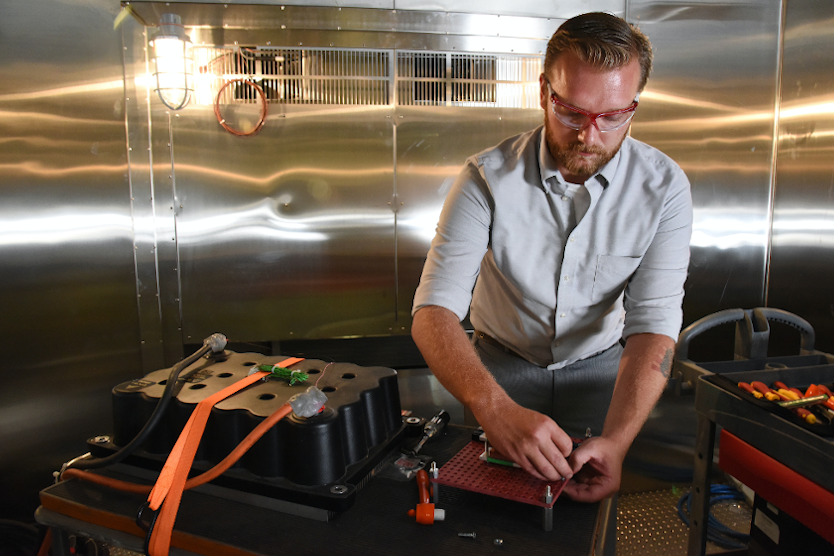
The ILT has developed a hybrid, printed circuit board that is not only more versatile but 20 times cheaper to produce than conventional ceramic boards.
© Unsplash
The imperative to make electric vehicles lighter and more energy efficient, coupled with global pressure on the supply of chips for power electronics, has prompted scientists to rethink the design of circuit boards. Now a team at the Fraunhofer Institute for Laser Technology (ILT) has developed a hybrid, printed circuit board that is not only more versatile but 20 times cheaper to produce than conventional ceramic boards.
Woo-Sik Chung, project manager from the Micro Joining Group at ILT, explains the significance of their innovation: “Until now, the rule was: you use a printed circuit board with a thin metallisation layer or one with a thick layer – either-or – depending on the application,” he says in a press release. Previously, different circuit boards would have to be used for different kinds of current, but the ILT’s novel single board suits all applications from LED lights to charging car batteries. “Our new manufacturing process enables us to realise both simultaneously on just one circuit board: signal and current transmission.”
This was achieved by increasing the thickness of copper blocks where needed and articulating the shape of the board according to the level of current flow. This process was made possible with additive printing in combination with selective thickening using cold gas spraying and laser microwelding.
“In the future, our hybrid printed circuit boards could combine several functions within one component,” Chung carries on. “If the process becomes established in practice, both the installation space for power electronics and the overall weight of electric cars could be significantly reduced, resulting in both a longer range and lower CO2 emissions in the long term.”
The CLAPE project (standing for Innovative Cold-spray deposition and Laser joining for PCB-based Power Electronics) is sponsored by the German Ministry for Economic Affairs and Energy (BMWi).


